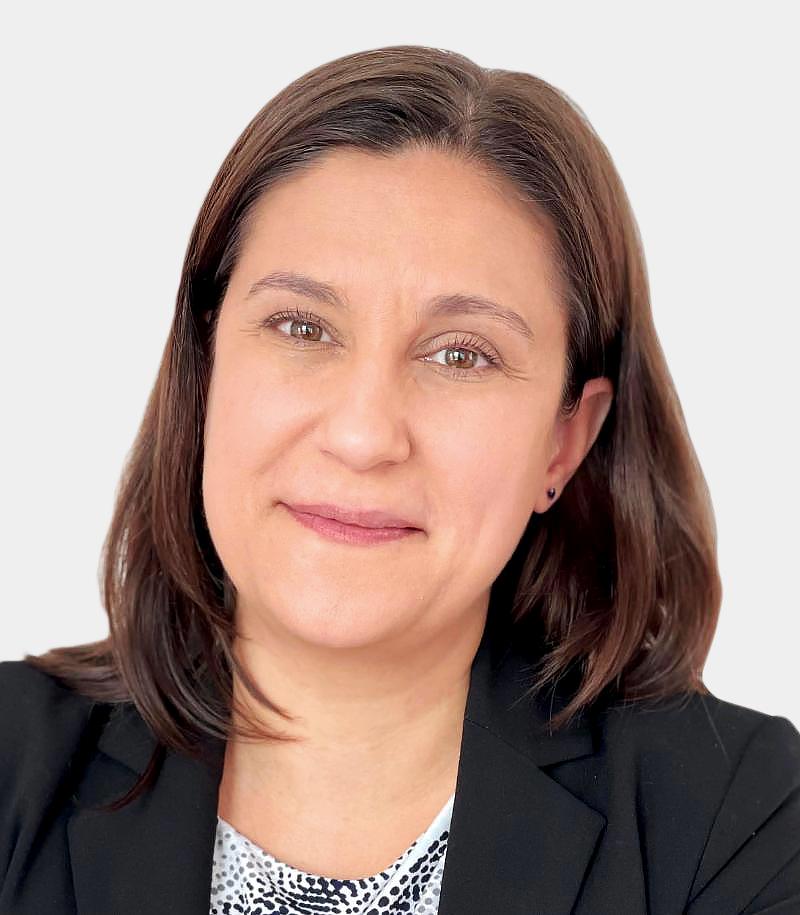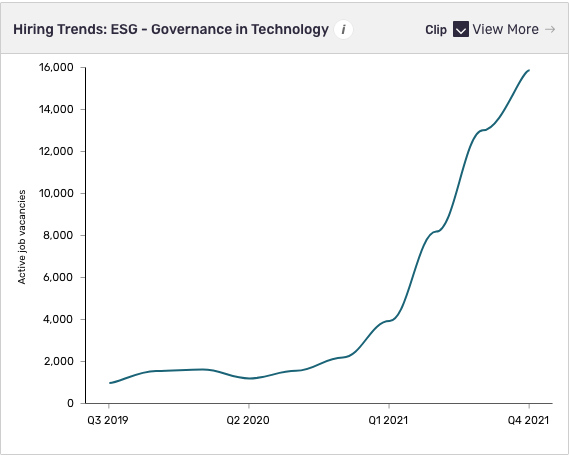
Madalina Tanasie is the CTO of Collibra, the tech firm using big data to solve businesses governance woes. This is a challenge more and more companies are stepping up to face head on.
Governance has become a major concern for businesses ever since the financial meltdown of 2008. Following the Great Recession, lawmakers around the world stepped in, determined to increase compliance to ensure that a similar collapse could not happen again.

Access deeper industry intelligence
Experience unmatched clarity with a single platform that combines unique data, AI, and human expertise.
Stateside, the Obama White House inked the Dodd-Frank Wall Street Reform and Consumer Protection Act, essentially forcing businesses to put more systems in place to fight back against backhanded behaviour.
Across the pond, the EU introduced a smattering of new laws to do the same. These regulations included the Second Payment Services Directive, also known as PSD2, and the Markets in Financial Instruments Directive, aka MiFID.
Over the years, governments have added privacy regulations such as the General Data Protection Regulation (GDPR) and new standards to stamp out other problems that could detrimentally effect people’s mental health, the environment and the economy.
Environmental, social and governance (ESG) issues have clearly become increasingly important for businesses.

US Tariffs are shifting - will you react or anticipate?
Don’t let policy changes catch you off guard. Stay proactive with real-time data and expert analysis.
By GlobalData“Corporate governance has come to the fore as directors and executives recognize that they are responsible not just to shareholders, as in the past, but to a wide range of stakeholders,” GlobalData wrote in a recent thematic research report.
Businesses are taking this trend seriously. Looking at hiring among technology companies, the number of open roles mentioning governance has skyrocketed from 998 in the third quarter of 2019 to 15,892 roles in the fourth quarter of 2021, according to GlobalData data.
Clearly, many ventures hope to overcome the regulatory challenge by throwing warm bodies at it, but there are also a number of startups innovating to make this hurdle more surmountable. These companies are often referred to as regulation technology, or regtech, companies.
This umbrella term encapsulates everything from cybersecurity companies trying to prevent the next big cryptocurrency exchange hack to digital identity companies helping the likes of Mastercard prevent financial fraud.
Collibra fits into the regtech boom in a different way. The data intelligence firm helps businesses stay on top of their governance woes by using powerful analytics to help them better manage and analyse their their data sets.
Over the years, it has helped Norwegian DNB Bank introduce new data-powered customer services. On the back of last quarter’s massive raise, the regtech unicorn plans to expand its global footprint further. As CTO of Collibra, Tanasie is instrumental to this growth.
Founded in 2008, the company achieved its unicorn status back in 2019 on the back of a $100m Series E round. It subsequently doubled that valuation following a $112.5m funding round in April 2020. Collibra most recently achieved a $5.25bn valuation in November 2021 on the back of a $250m Series G venture financing raise.
In the latest Q&A in our weekly CTO Talk series, the Collibra CTO discusses the limitations of artificial intelligence (AI), why big data is not a silver bullet and why she’s so excited about data mesh.
Eric Johansson: Tell us a bit about yourself – how did you end up in your current role?
Madaline Tanasie: I have a software engineering background and I have been in engineering and engineering leadership roles all my career. I joined Collibra initially as VP of operations and excellence in what was seen at the time as a counterintuitive move by some of my peers. It’s quite uncommon when you’ve spent so much time in technical engineering roles, and done it well at all levels, to transition into a role that does not include engineering.
However, technology transformation and organisational design have always been passions of mine and this was an exciting and unique opportunity to drive transformation, set up the Product and Engineering teams for scale, and advance a vision I really believed in. Eventually, and unsurprisingly, my two careers converged and I transitioned to the CTO role at Collibra. I’m really happy with the unconventional path I took to get here.

What’s the biggest technology trend you’re looking at in 2022?
[AI] has been trendy for a while but lately, in the context of the increased presence of AI in all aspects of our lives and in business-critical processes, the need for better AI governance solutions has been coming up quite a bit.
Many organisations still fail to recognise how dependent AI and ML outcomes are on data. The reality is that every machine learning model is trained by using data, which means the suggestions or connections it makes will only be as fair or biased as the data it is based on. Data quality is one of the top barriers to AI adoption, according to Gartner, so the implementation of this technology should really go hand in hand with ensuring well-governed data practices.
What do you think people get wrong the most when it comes to big data?
People talk about big data as if it is a silver bullet. The problem with all the hype is that companies often expect big data to deliver more value than it actually can. The biggest reason for this discrepancy between expectation and reality is the fact that there is much more to it than just volume – it is about ensuring data quality and avoiding data biases. In many cases, you might not actually need big data to gather great insights. What businesses and organisations really need is an intelligent approach to managing, governing, tracking, and securing data, so that they can then derive the right insights from the data they have.
Where did your interest in tech come from?
I am a mission-driven person and a bit of a perfectionist. I always knew I wanted to use my skills to make a difference and I aspired to be really good at whatever career I chose.
As a child, I was very interested in and got quite good at math and physics. When it came time to choose a career I realised I could use my knack for math and science in a concrete and tangible way to make a difference in the way the world operates. I saw software as a novel way to solve real-world problems, and that’s what I strive to do as part of my role as a CTO at Collibra each day.
What one piece of advice would you offer to other CTOs?
One key thing that I learned in the past two years is how different it is nowadays in a mostly-virtual world to ensure that information, decisions and dependencies are accurately communicated and to maintain organisational alignment. My advice is to stay connected not only with your small group of peers and trusted partners but also to constantly and proactively seek diverse perspectives by stepping outside of your comfort zone. You might not always like what you hear, but that’s how big ideas are born and, more importantly, that’s how they become real.
What’s the most surprising thing about your job?
It is very easy to assume that the role of the CTO is all about technology. What might surprise, however, is how much of it is actually about people. A lot of what I do revolves around connecting business stakeholders and technologists to ensure there is a good understanding of what the business needs and what technology can deliver. Engineers are a special kind of worker – they are precise, logical, and great at problem-solving – so we must make sure they are involved in the creative process and contribute to the design of the solution beyond its tech elements. A big part of my job is linking people and ideas together to enable collaboration that will help bring these ideas to life.
What’s the biggest technological challenge facing humanity?
Healthcare and biotechnology are some of the biggest technological challenges today – and I believe these will also create great opportunities for humanity over the coming decades. Driven by the pandemic and the need for more advanced treatment methods, data and technology have become vital to understanding illness and working our way through to potential recovery. The data that healthcare organisations hold is incredibly valuable – it’s perhaps the most valuable asset humanity has – and I expect it will be even more valuable going forward as the world looks to fight some of the biggest challenges we face today.
What’s the strangest thing you’ve ever done for fun?
I’m usually pretty traditional when it comes to the things I do for fun and I, just like most people, really enjoy traveling. One of the most adventurous things I’ve done for fun is swimming in an underground cave river in Mexico. Swimming in full darkness, uncertain about the way out, was a wonderful, but also quite a scary experience. However, it teaches one a lot about themselves and I appreciate the parallel with the many unforeseen situations we have to face in life. I would absolutely do it again.
What’s the most important thing happening in your field at the moment?
Data mesh is a big trend in the data space right now. Until recently, the way organisations approached big data was by bringing it into one place, structuring it, and mining it through data lakes and warehouses. Now we’re now seeing a huge cross-vertical shift towards data intelligence – with data mesh at its core. Organisations are shifting away from a centralised data strategy to a modern distributed architecture where the different business domains operationalise their own data and provide it “as a product” to other domains leveraging a central data infrastructure. Data mesh concept is the data platform version of microservices. The idea is to enable organizations to become more data-driven by making data more accessible, available, discoverable, secure, and interoperable. It’s an exciting shift.
In another life you’d be?
I’ve been privileged to be encouraged from a very young age to make my own choices and decisions and to take accountability for the outcome those result in. I strive to make the biggest impact that I can while staying true to my values at the same time. While not all my decisions have been perfect, so far I’ve been able to stay true to those values and aspirations, so I can’t think of a more fulfilling way to live.








